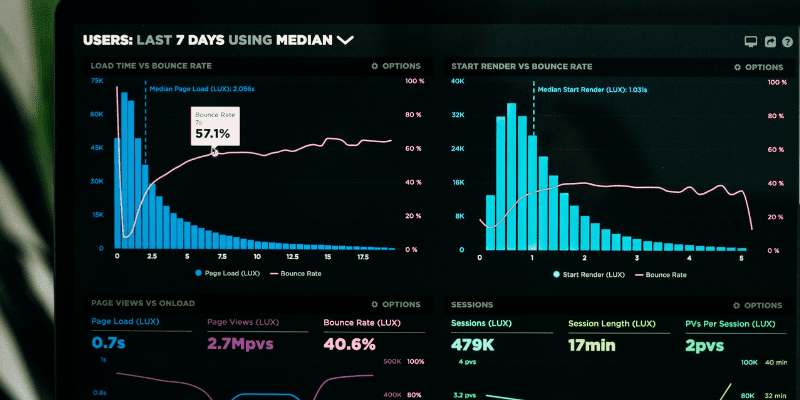In today’s data-driven world, the field of data science has emerged as a powerhouse, transforming industries, shaping decisions, and pushing the boundaries of what’s possible with information. From its humble beginnings to its current prominence, data science has come a long way, and it continues to evolve at a rapid pace. In this article, we will explore the fascinating journey of data science, from its origins to the present, and delve into the exciting future trends that promise to revolutionize the field even further.
Introduction
The Past: The Birth of Data Science
Data science may seem like a relatively new discipline, but its roots trace back to the mid-20th century. The term “data science” was coined in the early 1960s by computer scientist Peter Naur. However, the foundations were laid much earlier when statisticians and mathematicians began using mathematical models to analyze and interpret data.
Statistical Roots: In the early days, statisticians like Ronald A. Fisher and George E. P. Box pioneered the use of statistical methods for data analysis. They developed techniques that formed the basis for modern data science, such as regression analysis and experimental design.
Emergence of Data Mining: The 1980s and 1990s saw the rise of data mining, a precursor to modern data science. Researchers started applying machine learning algorithms to large datasets, extracting valuable insights and patterns.
The Present: Data Science in the Digital Age
The digital revolution of the late 20th and early 21st centuries transformed data science into a mainstream discipline. With the advent of the internet, social media, and e-commerce, vast amounts of data became available for analysis. Here’s how data science stands today:
Big Data Revolution: The explosion of data generated by online activities, IoT devices, and other sources led to the big data revolution. Data scientists now work with massive datasets, requiring advanced tools and techniques to extract meaningful information.
Machine Learning and AI: Machine learning and artificial intelligence (AI) are at the forefront of data science today. Algorithms like deep learning neural networks have enabled remarkable advancements in image recognition, natural language processing, and more.
Data Science in Business: Data science has become integral to business operations. Companies use data analytics to make informed decisions, optimize marketing strategies, and personalize customer experiences.
Interdisciplinary Nature: Data science has transcended traditional boundaries, incorporating elements of computer science, statistics, domain knowledge, and data engineering. This interdisciplinary approach ensures that data scientists can tackle complex real-world problems effectively.
The Future: Trends Shaping Data Science
The field of data science is far from static. As technology continues to advance, several exciting trends are poised to shape its future:
Explainable AI: As AI systems become more complex, there is a growing need for transparency and interpretability. Explainable AI (XAI) is a trend focused on making AI models more understandable and accountable, which is crucial for regulatory compliance and ethical considerations.
Edge Computing: Edge computing involves processing data closer to its source, reducing latency and enhancing real-time decision-making. Data scientists are exploring ways to optimize data analysis and machine learning at the edge.
Quantum Computing: Quantum computers have the potential to revolutionize data science by performing calculations at speeds impossible for classical computers. While quantum computing is still in its infancy, it holds great promise for solving complex problems more efficiently.
Automated Machine Learning (AutoML): AutoML is simplifying the process of building and deploying machine learning models. It enables individuals with limited data science expertise to harness the power of AI for their specific needs.
Ethical AI and Data Privacy: With growing concerns about data privacy and ethics, data scientists will play a pivotal role in developing responsible AI systems that respect user privacy and adhere to ethical standards.
Data Science in Healthcare: The healthcare industry is increasingly relying on data science for personalized treatment plans, drug discovery, and disease prediction. Expect significant advancements in this domain in the coming years.
Data Science in Climate Change: Climate scientists are leveraging data science to analyze climate data and develop models for predicting environmental changes and their impacts. Data-driven solutions will be crucial in addressing climate challenges.
Conclusion
The evolution of data science has been nothing short of remarkable. From its early statistical roots to the present-day AI-driven revolution, data science has continually adapted to the changing technological landscape. As we look to the future, data science will continue to play a pivotal role in shaping industries, solving complex problems, and advancing our understanding of the world. With emerging trends like explainable AI, edge computing, and quantum computing, the possibilities for data science are limitless. As data scientists, researchers, and businesses continue to push the boundaries, we can expect even more exciting developments on the horizon. Data science is not just a field; it’s a journey of discovery, innovation, and endless potential.



































